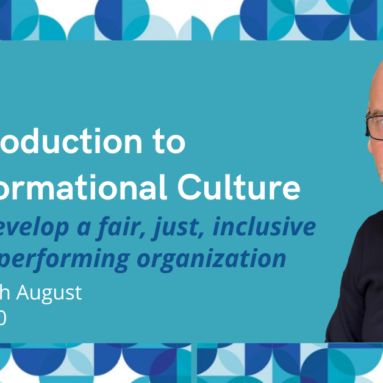
Download this case study


Read more case studies:
Royal College of Paediatrics & Child Health
An informal approach to resolving workplace conflict is helping the Royal College of Paediatrics and Child Health (RCPCH) develop a collaborative, progressive workforce in support of its aim to transform child health around the world.
The RCPCH has 19,000 member paediatricians, supported by a staff of 165, and plays a major role in postgraduate medical education, professional standards, research and policy.
The organisation places strong emphasis on having a fair and just culture where employees are able to engage in constructive debate and solve any concerns or complaints that may arise through open, respectful dialogue.
Introducing a resolution approach
The first step to establishing this collaborative approach was a reframing of the organisation’s formal grievance procedure – a move instigated by Director of People Louise Frayne, who was concerned that a ‘blame culture’ may take hold.
“There wasn’t a particularly high level of grievances when I joined, but there were a lot of unhappy staff and a great deal of griping going on beneath the surface,” she said. “As a relatively small organisation, we can’t move people around. If you are aggrieved with someone you are still going to have to work with them, so it was important we found ways to nip issues in the bud and rebuild relationships.”
RCPCH introduced an over-arching resolution policy, which required employees to demonstrate they had tried all avenues to sort out their differences informally before making a formal complaint.
To support the shift, three of the HR team trained with The TCM Group as mediators, so that they could facilitate conversations between staff who had fallen out with each other and help get relationships back on track.
“We really wanted to avoid having to go through lengthy grievance processes because there is never a winner,” said Louise. “It dilutes trust, leads to a lot of bad feeling and inevitably there is a ripple effect with other people in the team being affected.”
Since the introduction of the resolution approach, the majority of mediations have been conducted internally, although in a few particularly challenging cases, RCPCH has called in professional external mediators from The TCM Group.
“Just having that independence and objectivity has meant we’ve been able to progress some really difficult conversations and get people to take a step back and think about things from each other’s perspective,” said Louise.
The RCPCH places a strong emphasis on all its managers also having the skills to facilitate constructive dialogue themselves, and has made training in conflict management and difficult conversations mandatory as part of its management development training.
“We stress to managers that if conflict is well managed, it has huge benefits in terms of being innovative and creative, because you are able to get everyone’s views on the table. Just because a direct report doesn’t agree with you, doesn’t mean they are wrong,” said Louise.
She believes the shift to a resolution approach has been transformational for the RCPCH, and has meant the organisation has been well placed, with focused, supportive staff, to deal with the challenges of the Covid-19 pandemic.
“We have developed a very open and transparent culture where people work collaboratively and respect each other’s opinions, even if they don’t agree with each other. It’s a very modern, progressive place to work.”











